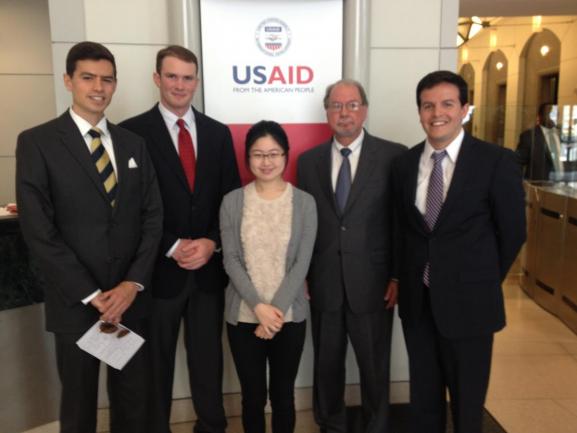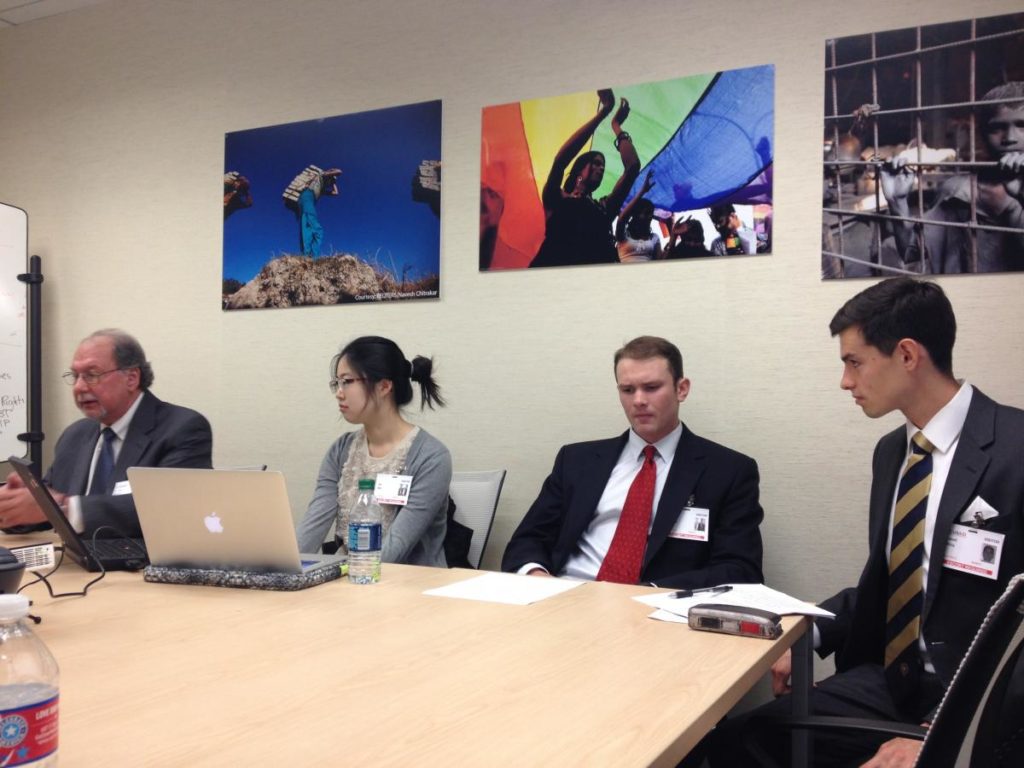Student Research Groups
Electoral Violence Study Group
The Democracy and Governance Program was excited to expand our research group offerings in 2016 and offer students the opportunity to conduct research on electoral violence and present their findings to the U.S. Department of State’s Bureau of Conflict and Stabilization Operations. Working with Dr. Patrick Quirk, students performed assessments of the risk for violence surrounding upcoming elections around the world and developed policy recommendations for preventing or mitigating identified risks.
Through their work on this important topic, students developed expertise in the main analytic methodologies utilized by the U.S. Government and others for assessing electoral violence. They crafted original reports tailored for policymakers in this area and delivered oral briefings at the State Department on their findings. In addition to producing valuable analysis for those in the field, students further developed their own professional skills and gained experience in a key area of the democracy and governance sector.
- Democratic Republic of Congo
- Thailand
- Afghanistan
- Algeria
USAID-DRG

The Democracy and Governance Program has established a program of study under the auspices of the United States Agency for International Development and the Center of Excellence on Democracy, Human Rights, and Governance (USAID-DRG). As part of this project, students havethe ability to provide valuable and real-time research for USAID on various topics related to elections and election security.
The first installment of this course, held in the Spring 2015 semester, had students do research on electoral violence, seeking to develop predictive methodologies and best practices to respond to this type of violence. The students then presented their findings to the Center of Democracy, Human Rights, and Governance at USAID (USAID-DRG), to whom they offered a research report and a visual display of incidents of election violence, to be used by USAID to inform their efforts on this issue.

